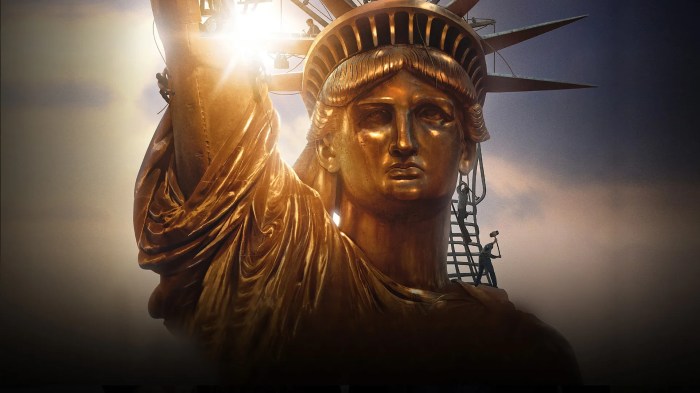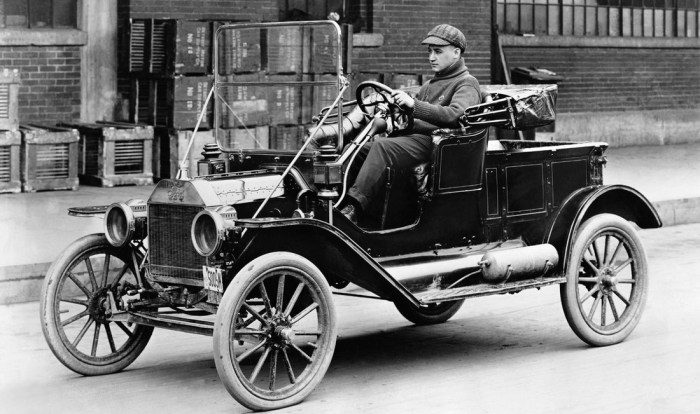The history channel america the story of us episode #2-revolution – In this episode of The History Channel’s “America: The Story of Us,” we delve into the pivotal events that shaped the American Revolution, exploring the intellectual, political, and social forces that ignited the fight for independence. From the Enlightenment’s ideals to the colonists’ grievances against British rule, we trace the path to revolution and analyze the Declaration of Independence, a document that declared a new era of self-governance and human rights.
Revolutionary Ideals

The American Revolution was shaped by a number of intellectual and philosophical influences, including the Enlightenment, which emphasized reason, individualism, and natural rights. Key Enlightenment thinkers such as John Locke, Montesquieu, and Jean-Jacques Rousseau argued that all individuals have certain fundamental rights, including the right to life, liberty, and property.
These ideas were influential in the development of the American Declaration of Independence, which declared that “all men are created equal” and have the right to “life, liberty, and the pursuit of happiness.”
Natural Rights and the Social Contract
The American Revolutionaries believed that all individuals had certain natural rights, which were inherent and unalienable. These rights were not granted by any government, but rather were inherent in human nature. The social contract theory, which was developed by thinkers such as John Locke and Jean-Jacques Rousseau, argued that governments were created by the consent of the governed and that they were only legitimate if they protected the natural rights of individuals.
Colonial Grievances
The American colonists had a number of specific grievances against British rule, which contributed to the outbreak of the American Revolution. These grievances included economic, political, and social issues.
Economic Grievances
- The Stamp Act (1765) imposed a tax on all printed materials, including newspapers, pamphlets, and legal documents. This tax was widely resented by the colonists, who saw it as an infringement on their freedom of speech.
- The Townshend Acts (1767) imposed taxes on a variety of goods imported into the colonies, including glass, paper, and tea. These taxes were also resented by the colonists, who argued that they were being taxed without representation.
- The Intolerable Acts (1774) were a series of laws passed by the British Parliament in response to the Boston Tea Party. These laws closed the port of Boston, imposed martial law on Massachusetts, and allowed British soldiers to search homes and businesses without a warrant.
The Intolerable Acts further inflamed tensions between the colonists and the British government.
Political Grievances
- The colonists were not allowed to vote for members of the British Parliament. This meant that they had no say in the laws that were passed by Parliament.
- The British government appointed governors and other officials to rule the colonies. These officials were often corrupt and unresponsive to the needs of the colonists.
- The colonists were subject to the British courts, which were often biased against them.
Social Grievances
- The colonists were discriminated against by the British government. For example, they were not allowed to hold certain jobs or own certain types of property.
- The colonists were subject to the British military, which was often used to suppress dissent.
- The colonists were not allowed to practice their own religion freely. This was particularly true for Catholics and Jews.
Road to Revolution
The American Revolution began with the Boston Tea Party in 1773, in which a group of colonists disguised as Mohawk Indians boarded three British ships and dumped their cargo of tea into Boston Harbor. This act of defiance was in response to the Tea Act, which gave the British East India Company a monopoly on the sale of tea in the colonies.
The Boston Tea Party led to the passage of the Intolerable Acts, which further inflamed tensions between the colonists and the British government.
First Continental Congress
In 1774, the First Continental Congress was held in Philadelphia, Pennsylvania. The Congress was attended by delegates from all thirteen colonies. The delegates discussed their grievances against the British government and issued a Declaration of Rights and Grievances. The Declaration of Rights and Grievances called for the repeal of the Intolerable Acts and for the restoration of the colonists’ rights.
Battle of Lexington and Concord
In 1775, British troops marched to Lexington and Concord, Massachusetts, to seize a cache of weapons that the colonists had stored there. The colonists resisted, and the British troops opened fire. The Battle of Lexington and Concord was the first battle of the American Revolution.
Declaration of Independence
In 1776, the Continental Congress adopted the Declaration of Independence, which declared the thirteen colonies to be free and independent states. The Declaration of Independence was written by Thomas Jefferson and was based on the principles of natural rights and the social contract.
War for Independence: The History Channel America The Story Of Us Episode #2-revolution
The American Revolutionary War lasted from 1775 to 1783. The war was fought between the thirteen American colonies and the British government. The Americans were led by George Washington, who was appointed commander-in-chief of the Continental Army. The British were led by a series of generals, including William Howe, Henry Clinton, and Charles Cornwallis.
Major Battles
- Battle of Saratoga (1777): A decisive American victory that led to the French entering the war on the side of the Americans.
- Battle of Yorktown (1781): The final battle of the war, which resulted in the surrender of the British army under General Cornwallis.
Foreign Aid, The history channel america the story of us episode #2-revolution
The Americans received significant aid from France during the war. The French provided the Americans with money, weapons, and supplies. The French also sent a fleet of ships to help the Americans blockade the British navy.
Founding a New Nation
After the American Revolution, the thirteen colonies established a new government under the Articles of Confederation. The Articles of Confederation were a weak central government that gave most of the power to the individual states. In 1787, the Constitutional Convention was held in Philadelphia, Pennsylvania.
The Constitutional Convention drafted the Constitution of the United States, which established a stronger central government.
Challenges
- The new government faced a number of challenges, including:
- The need to establish a stable economy
- The need to create a strong national defense
- The need to address the issue of slavery
Debates
- The creation of the new government was a controversial process. There were a number of debates about the powers of the central government and the rights of the states.
General Inquiries
What were the main causes of the American Revolution?
The American Revolution was caused by a complex set of factors, including intellectual influences from the Enlightenment, specific grievances against British rule, and the colonists’ desire for self-governance.
Who were some of the key figures in the American Revolution?
Key figures in the American Revolution include George Washington, Thomas Jefferson, Samuel Adams, and Benjamin Franklin.
What was the significance of the Declaration of Independence?
The Declaration of Independence was a pivotal document that declared the American colonies’ independence from British rule and Artikeld the principles of self-governance and human rights.
